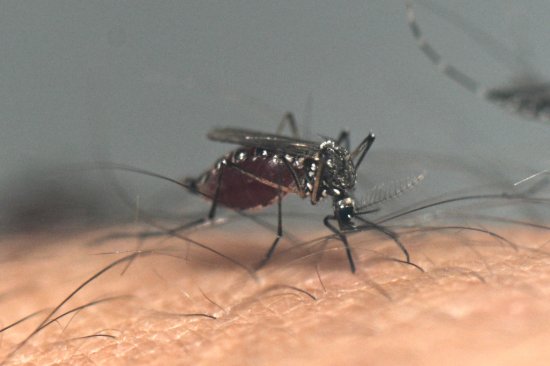
Southern Nevada is experiencing the highest level of mosquito activity in known history.
Some people may want to put their summer vacation plans to the Las Vegas area on hold, after health officials reported that Southern Nevada is experiencing the highest level of mosquito activity in known history, with more than 3,000 mosquitoes testing positive for West Nile virus.
Southern Nevada Health District said in a press release Monday that as of June 6, 91 pools, comprising 3,081 mosquitoes from 16 ZIP codes, have tested positive for the virus. Two pools, comprising 46 mosquitoes from two ZIP codes, have also tested positive for the virus that causes St. Louis encephalitis.
[time-brightcove not-tgx=”true”]The health district’s Mosquito Surveillance Program has received an increased number of complaints from residents about mosquito activity, according to the press release. Health officials attributed the rise in reports partly to the increased presence of Aedes aegypti mosquitoes in the area—these mosquitoes are aggressive biters during the day and tend to bite people rather than birds. Aedes aegypti have tested positive for West Nile virus for the first time in Clark County, the press release said.
For the past four years, Southern Nevada has had minimal West Nile virus activity, health officials said. Only two human cases of the virus were reported in 2023. In 2019, officials reported 43 confirmed human cases.
Read More: Mosquito-Borne West Nile Virus Soared in 2018, According to CDC Data
Humans can become infected with West Nile virus if they are bitten by a mosquito that is infected with the virus. About one in five people who are infected with West Nile virus will develop symptoms, such as fever, headache, body aches, vomiting, diarrhea, or rash, according to the press release. In some cases—about one in 150 people—those who are infected with West Nile virus can develop a more serious, or even fatal, illness.
The last time mosquitoes in Clark County tested positive for St. Louis encephalitis virus was in 2019, and there has not been a human case since 2016, according to the press release. Like West Nile virus, St. Louis encephalitis virus is spread to humans through the bite of an infected mosquito, and although most people who are infected will not develop symptoms, some could develop fever, headache, nausea, vomiting, and fatigue. Some people could develop a neuroinvasive form of the disease that causes either encephalitis, which is inflammation of the brain, or meningitis, which is inflammation of the membranes surrounding the brain and spinal cord, according to the press release.
Health officials encouraged the public to take preventive steps to protect themselves from mosquito-borne illnesses, including getting rid of standing water, which can be a breeding source for mosquitoes, as well as using insect repellent to prevent mosquito bites.